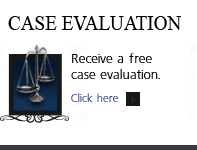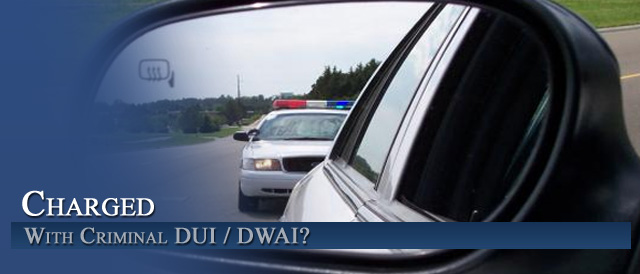
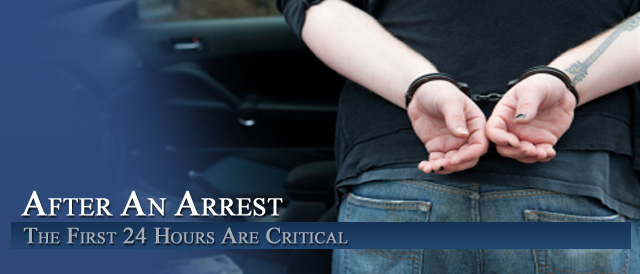

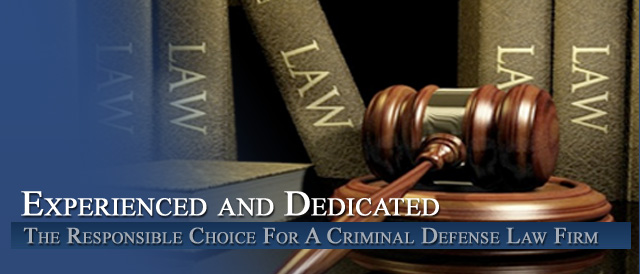
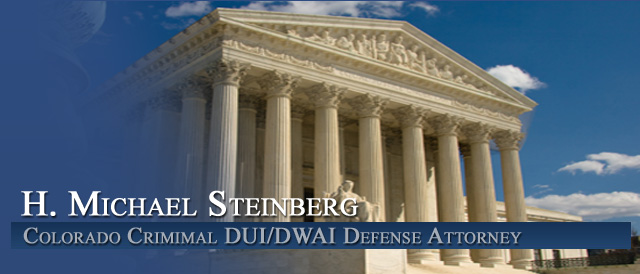
Colorado Criminal Law – Understanding Hit And Run Cases – 42-6-1601, 14-6-1603
By H. Michael Steinberg Colorado DUI Criminal Defense Lawyer – Attorney
Colorado Criminal Law – Understanding Hit And Run Cases – 42-6-1601, 14-6-1603 – The term “hit and run” under Colorado law is both complex and misunderstood. This article takes a closer look at what the crime actually means to the driver who flees the scene of an accident.
The closer you look at Colorado’s Hit and Run laws the more complex they seems to be. Clearly hit and run cases are fact specific. Every case is different, but they all seem to have one thing in common – the immediacy of the decision for flight – preceded, most of the time, by an extreme emotional reaction of fear and panic.
Defending a Colorado Hit and Run charge means the close scrutiny of the facts of each case followed by applying those facts to the law and then deciding the right way to proceed …tactically.
Understanding That Colorado’s Hit And Run Law – Section 42-4-1601- Is A “Strict Liability” Crime
As a general rule, Colorado crimes require two things, a mental state (mens rea) and a voluntary act (actus reus). The exception to this general rule are crimes – such as hit and run – that do NOT require a specific culpable mental state, only the physical act of failure to comply with a lawful duty.
Here is the basic Colorado Hit and Run law:
The Leaving the Scene of an Accident with Serious Injury statute, Section 42-4-1601, C.R.S. provides:
(1) The driver of any vehicle directly involved in an accident resulting in injury to, serious bodily injury to, or death of any person shall immediately stop such vehicle at the scene of such accident or as close to the scene as possible but shall immediately return to and in every event shall remain at the scene of the accident until the driver has fulfilled the requirements of section 42-4-1603(1).
The penalties for the commission of this crime depends on the type of harm that results from the accident.
A driver commits:
§ 42-4-1601(2) C.R.S. |
Some Important Legal Definitions
“Injury” means physical pain, illness, or any impairment of physical or mental condition.
“Serious bodily injury” means injury that involves, either at the time of the actual injury or at a later time, a substantial risk of death, a substantial risk of serious permanent disfigurement, or a substantial risk of protracted loss or impairment of the function of any part or organ of the body, or breaks, fractures, or burns of the second or third degree.
What If You Didn’t “Mean” To Leave? – The Nature Of Strict Liability Crimes
As noted above, Colorado’s Hit and Run Section 42-4-1601 does not include a culpable mental state. To understand this a comparison can be made to the Colorado crime of DUI. To commit DUI, a person must perform the voluntary act of driving while under the influence of alcohol or drugs. The mental state of the driver is not relevant to proof of the crime.
Hit and Run, on the other hand, requires proof of the omission of the performance of an act – the duty of exchanging information or reporting an accident which a citizen is physically capable of performing. This then, is the foundation of criminal responsibility for the crime of Hit and Run.
If all that is required for the commission of a a crime is an act (driving while intoxicated – DUI) or the omission of an act (failure to stop at an accident – Hit and Run) – there is no culpable mental state on the part of the actor, and therefore the commission or omission of these acts or failure to act – constitute the total elements of the crime. This is known as a crime of “strict liability”.
To understand the crime of Hit and Run and DUI as strict liability crimes one needs to understand that the crimes are established by conduct which includes a voluntary act or the omission to perform an act which the defendant is physically capable of performing.
The intent to commit the crime need not be proven by the State as long as the act, or failure to act, voluntary.
Summary – The “Duty” To Stop At The Scene And Exchange Information – Is Nearly Absolute
Colorado’s Hit and Run law – Section 42-4-1601 creates a duty for a driver involved in an accident to stop at the scene, to render aid if necessary, and to fulfill the laws reporting requirements.
The refusal or failure to fulfill this duty is the kind of “omission to perform an act” that a driver is physically capable of performing that violates the law.
The law, Section 42-4-1601 CRS, provides that a driver involved in an accident “shall immediately stop.” There is no exception – the language of the law creates a mandatory duty.
The analysis is simple. No matter who is at fault – if there has been an accident, there is a statutory duty to stop and assist if necessary. The failure to stop and assist results in criminal liability.
A Closer Look At Your Duties As A Colorado Driver Involved In An Accident
What follows is a detailed analysis of some common Colorado Hit and Run situations – and the driver’s duty in each instance:
Did you hit an occupied vehicle?
If the answer is YES – If you have been in a car accident in Colorado, you MUST remain at the scene of the accident unless:
You leave the scene ONLY to lawfully report the accident to law enforcement, or
You are yourself so badly injured that you are incapable of performing your lawful duty because of the need for immediate medical attention.
Was the person (or were the persons) in the occupied car in some way injured?
If the answer is YES –
You are required, where practically possible, to render aid to that injured person using reasonable assistance. An example may not necessarily mouth to mouth resuscitation, but would be more along the lines of calling 911 or, if necessary, because of distances involved, transport the injured person to the nearest doctor or hospital.
Was the car an unattended or other form of property unoccupied ?
If the answer is Yes – you are required to stop – and either:
1. Immediately locate and notify the operator or owner of the car or other property and provide Your name, address, and the registration (VIN) number of the vehicle you were driving.
or
2. Leave a note securely attached to the property in a conspicuous place which informs the owner of the car or property of your name and address, and the registration number of the vehicle you were driving.
Then you must follow up and report the accident to the police and return to the accident scene (if required to do so by law enforcement)
Defending Against The Colorado Hit And Run Case
The law provides for very few, if any, viable defenses to a Hit and Run charge.
Defending Colorado Hit and Run cases is not subject to easy analysis. The facts of each case must be considered independently before the formulation and the construction of the defense theory of the case can be put together.
In a Colorado Hit and Run case, the issue of fault for the accident or the extent of any damages that result from the accident are NOT at issue as regards the reporting requirement. There is no defense that is the result of fault. BOTH (ALL) parties to an accident -no matter what the circumstances – are required to obey their lawful “reporting duties.”
Identification of the Defendant as the perpetrator is the key issue in almost all hit and run cases. Proving the identify of the driver may be the ONLY issue in the case that is difficult for the prosecutor to prove. Eyewitnesses are often unable to “ID” the driver. Corroborative evidence is a also weak or entirely missing from the State’s case.
If there is no contemporaneous video of the accident, law enforcement witnesses who see or hear the accident or who arrive quickly enough to locate and identify the drive, or a confession of the primary suspect, the case is usually never filed or dismissed after filing.
Some Possible Scenarios For Launching A Colorado Hit And Run Defense
If ANY of the following scenarios apply – you May have a defense to a Colorado Hit and Run charge:
-
You were so seriously injured at the scene – you could not remain or even report the accident,
-
You are an “innocent actor” – you did not know – were not aware that you had hit another car, a person or had caused property damage.
-
You were forced, due to the unique circumstances of the accident, to leave the scene to look for help for example in the form of the police or to locate help for an injured party.
-
You could not locate any “victims” in the accident – so you were only obligated to leave the legally required information.
The “Innocent” Actor Accident – A Mistake Of Fact
There are times when we are so distracted in life – we do not realize what is happening around us. The classic example, and the least serious form of Hit and Run is when you back out of a space and contact another vehicle. This is all too common and the result is either an honest ignorance of the event or a review if the contact and a finding of no damage.
The Decision To Leave For Safety Reasons
Having been in law enforcement for some 14 years – it is clear that late night accidents in dangerous high crime areas present unusual circumstances that a DA, a Judge or a jury can understand might motivate a person who choose between obeying the law and staying safe.
It may be a rational decision to leave the scene of an accident and proceed to the nearest police department or other safe location to report the accident. If this occurs – there can be no hesitation or delay in reporting the situation to the police.
Other Defenses That May Apply
-
You were not driver: – Someone else was driving the car.
-
You lost consciousness: Head or other neurological injury that prevented you from acting rationally.
-
You were forcibly taken from the scene by a friend, witness, or Good Samaritan ,
The High Profile Of Some Colorado Hit And Run Case – The Need For Experience
Hit and Run death cases, whether they are alcohol or drug related or reckless acts of an aggressive driver, are often media driven. The death of any person is always news. But the death of an innocent victim who was only driving on our roads and highways – strikes home to all of us – because of the fear that we could be next.
It is not unusual for individuals in hit and run death cases to go to jail or even to prison. The media will often follow these cases from start to finish and the attention of the media is not welcome by the defense. It is in these difficult hit and run cases that the most experienced Colorado criminal defense lawyers can make the difference.
The Colorado Laws – Hit And Run
§ 42-4-1601. Accidents Involving Death or Personal Injuries – Duties
(1) The driver of any vehicle directly involved in an accident resulting in injury to, serious bodily injury to, or death of any person shall immediately stop such vehicle at the scene of such accident or as close to the scene as possible or shall immediately return to the scene of the accident. The driver shall then remain at the scene of the accident until the driver has fulfilled the requirements of section 42-4-1603 (1). Every such stop shall be made without obstructing traffic more than is necessary.
(1.5) It shall not be an offense under this section if a driver, after fulfilling the requirements of subsection (1) of this section and of section 42-4-1603 (1), leaves the scene of the accident for the purpose of reporting the accident in accordance with the provisions of sections 42-4-1603(2) and 42-4-1606.
(2) Any person who violates any provision of this section commits:
(a) A class 1 misdemeanor traffic offense if the accident resulted in injury to any person;
(b) A class 4 felony if the accident resulted in serious bodily injury to any person;
(c) A class 3 felony if the accident resulted in the death of any person.
(3) The department shall revoke the driver’s license of the person so convicted.
(4) As used in this section and sections 42-4-1603 and 42-4-1606 :
(a) “Injury” means physical pain, illness, or any impairment of physical or mental condition.
(b) “Serious bodily injury” means injury that involves, either at the time of the actual injury or at a later time, a substantial risk of death, a substantial risk of serious permanent disfigurement, or a substantial risk of protracted loss or impairment of the function of any part or organ of the body, or breaks, fractures, or burns of the second or third degree.
§ 42-4-1603. Duty to Give Notice, Information, and Aid
(1) The driver of any vehicle involved in an accident resulting in injury to, serious bodily injury to, or death of any person or damage to any vehicle which is driven or attended by any person shall give the driver’s name, the driver’s address, and the registration number of the vehicle he or she is driving and shall upon request exhibit his or her driver’s license to the person struck or the driver or occupant of or person attending any vehicle collided with and where practical shall render to any person injured in such accident reasonable assistance, including the carrying, or the making of arrangements for the carrying, of such person to a physician, surgeon, or hospital for medical or surgical treatment if it is apparent that such treatment is necessary or if the carrying is requested by the injured person.
(2) In the event that none of the persons specified are in condition to receive the information to which they otherwise would be entitled under subsection (1) of this section and no police officer is present, the driver of any vehicle involved in such accident after fulfilling all other requirements of subsection (1) of this section, insofar as possible on the driver’s part to be performed, shall immediately report such accident to the nearest office of a duly authorized police authority as required in section 42-4-1606 and submit thereto the information specified in subsection (1) of this section
§ 42-4-1606. Duty to Report Accidents
(1) The driver of a vehicle involved in a traffic accident resulting in injury to, serious bodily injury to, or death of any person or any property damage shall, after fulfilling the requirements of sections 42-4-1602 and 42-4-1603 (1), give immediate notice of the location of such accident and such other information as is specified in section 42-4-1603(2) to the nearest office of the duly authorized police authority and, if so directed by the police authority, shall immediately return to and remain at the scene of the accident until said police have arrived at the scene and completed their investigation thereat.
…
(3) The department may require any driver of a vehicle involved in an accident of which report must be made as provided in this section to file supplemental reports whenever the original report is insufficient in the opinion of the department and may require witnesses of accidents to render reports to the department.
Colorado Criminal Law – Understanding Hit And Run Cases – 42-6-1601, 14-6-1603
If you found any of the information I have provided on this web page article helpful please click my Plus+1 or the Share buttons for Twitter and Facebook below so that others may also find it.
The reader is admonished that Colorado criminal law, like criminal law in every state and at the Federal level, changes constantly. The article appearing above was accurate at the time it was drafted but it cannot account for changes occurring after it was uploaded.
If, after reading this article, you have questions about your case and would like to consider retaining our law firm, we invite you to contact us at the Steinberg Colorado Criminal Defense Law Firm – 303-627-7777.
Never stop fighting – never stop believing in yourself and your right to due process of law. You will not be alone in court, H. Michael will be at your side every step of the way – advocating for justice and the best possible result in your case. H. Michael Steinberg is passionate about criminal defense. His extensive knowledge and experience of Colorado Criminal Law gives him the edge you need to properly handle your case
 ABOUT THE AUTHOR: H. Michael Steinberg – Email The Author at:
ABOUT THE AUTHOR: H. Michael Steinberg – Email The Author at:
A Denver Colorado Criminal Defense Lawyer – or call his office at 303-627-7777 during business hours – or call his cell if you cannot wait and need his immediate assistance – please call 720-220-2277.
“A good criminal defense lawyer is someone who devotes themselves to their client’s case from beginning to end, always realizing that this case is the most important thing in that client’s life.”
You should be careful to make a responsible choice in selecting a Colorado Criminal Defense Lawyer. We encourage you to “vet” our firm. Over the last 40 plus years – by focusing ONLY on Colorado criminal law – H. Michael has had the necessary time to commit to the task of constantly updating himself on nearly every area of criminal law, to include Colorado criminal law and procedure and trial and courtroom practice. H. Michael works hard to get his clients the best possible results in and out of the courtroom. He has written, and continues to write, extensively on Colorado criminal law and he hopes this article helps you in some small way – Colorado Criminal Law – Understanding Hit And Run Cases – 42-6-1601, 14-6-1603.
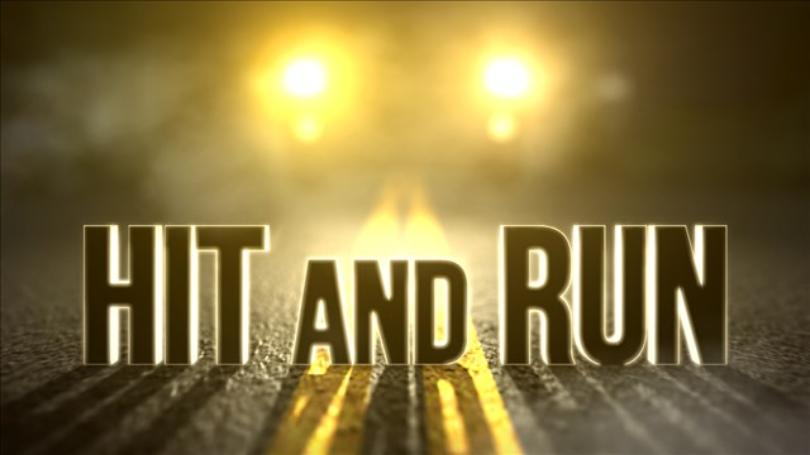
Other Articles of Interest:
- Colorado’s Habitual Traffic Offender Law – CRS 42-2-206 – Driving After Revocation Prohibited – DAJP
- A Comprehensive Look At Understanding Colorado DUID – Drugged Driving – Marijuana Driving Cases – Part I
- Understanding The Elusive Wet Reckless Plea Bargain In Colorado DUI Cases
- Understanding The Colorado Law Of Careless Driving 42-4-1402 – Bodily Injury Or Death
- Colorado DUI Interlock Program – Understanding the Interlock Device – Colorado DUI Consequences Part I of II


